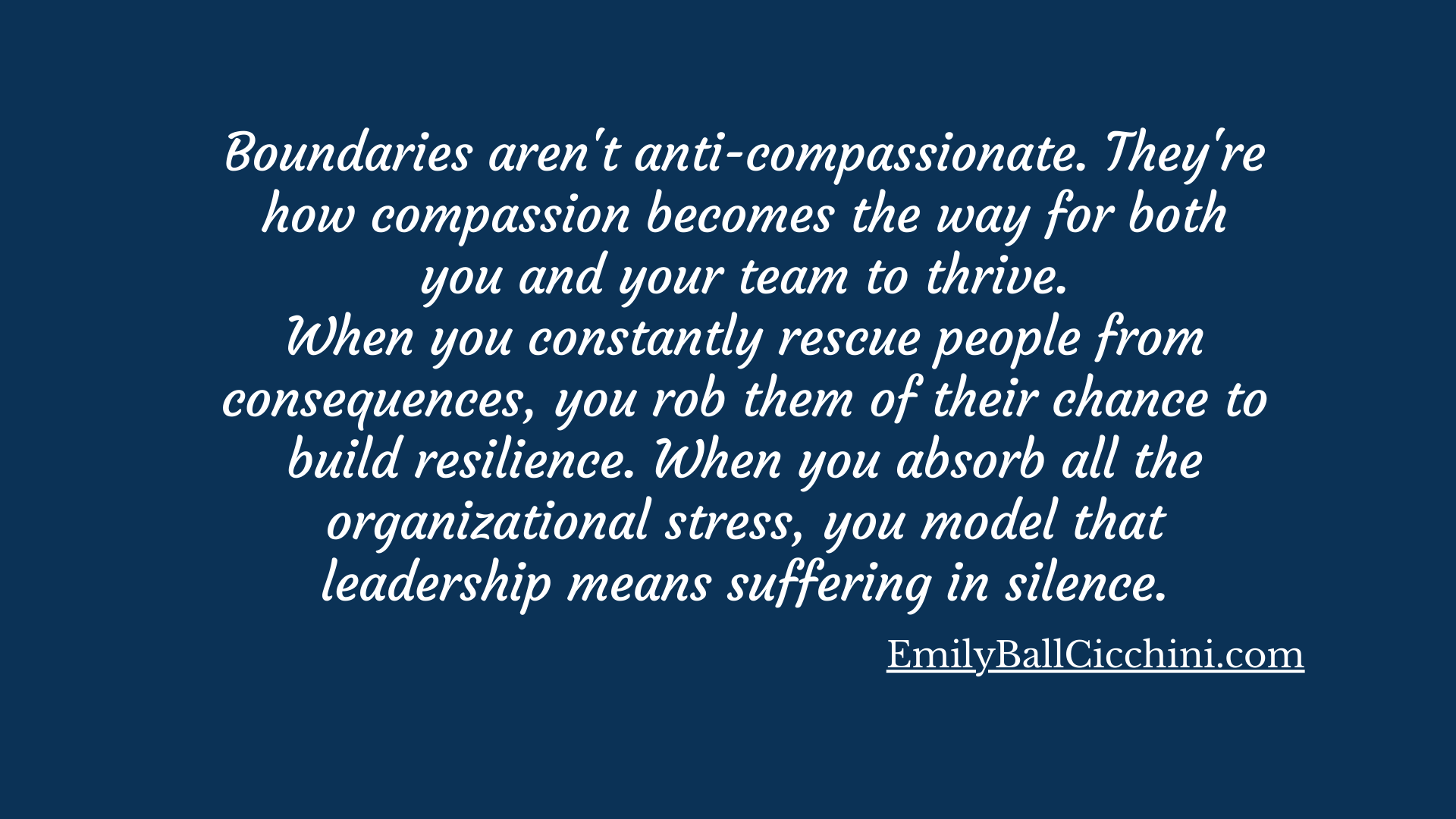Too Much Compassion Hurts Everyone

Let's be honest: writing about compassionate leadership is way easier than actually doing it.
Especially if you're naturally empathetic. You've either been there or seen it happen—saying yes to every request, absorbing your team's stress as your own, making exceptions that become expectations. You want to help, but somehow you end up feeling taken advantage of, and your team seems less resilient, not more.
My credo's advice to "lead with compassion" sounds great until you're the manager who can't say no. And that has been me more than once, for sure.
The Too-Much-Compassion Problem
The cycle looks like this:
- Team member has childcare emergency → You immediately reassign their work
- Someone's struggling financially → You hint they shouldn't worry about performance
- Layoffs are coming → You try to shield everyone from the reality
- Budgets are tight → You take on extra work yourself rather than having hard conversations
The result? You're burned out, your team isn't learning to problem-solve, and the actual problems keep getting worse.
The Messy Middle Ground
Real compassionate leadership isn't about being nice. It's about being useful in resolving the emotional stress that the other person is feeling. And sometimes being useful looks cold or mean in the moment.
Instead of: "Don't worry about the deadline, family comes first."
Try: "Family emergencies happen. What's the minimum viable version we can deliver on time, and what can we reschedule?"
Instead of: Taking on someone's work when they're overwhelmed.
Try: "This workload isn't sustainable. Let's look at what we can stop doing or do differently."
Instead of: Avoiding difficult conversations about performance during tough times.
Try: "I know things are hard right now. Let's figure out what support you need to succeed here."
The Reality Check
Here's what no one tells you: boundaries aren't anti-compassionate. They're how compassion becomes the way for both you and your team to thrive.
When you constantly rescue people from consequences, you rob them of the chance to build resilience. When you absorb all the organizational stress, you model that leadership means suffering in silence.
Three Questions That Help
When someone brings you a problem, ask yourself:
- "Am I solving this because it helps them grow, or because I can't tolerate their discomfort?"
- "What would I want my boss to do if this were me?"
- "Is this creating a pattern that will serve them (and me) six months from now?"
The Hard Truth
Some days, compassionate leadership means disappointing people. It means saying "I understand this is difficult AND here's what needs to happen." It means caring about someone's long-term success more than their short-term comfort.
And yes, people might call you unsympathetic. They might prefer the manager who just says yes to everything. But they won't respect that manager, and they won't learn from them.
The goal isn't to be liked. It's to be helpful. Sometimes those are the same thing. Often, they're not.

